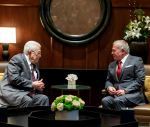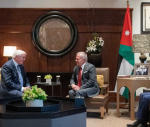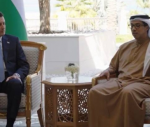You are here
Possible outcomes of the Mosul battle
Oct 23,2016 - Last updated at Oct 23,2016
According to various security reports, the last few weeks have seen systematic mass withdrawal of Daesh fighters from Mosul, in anticipation of the battle to free this city from the terrorist group’s grip.
The US insists on separating political and military efforts in the fight against Daesh in the two main cities the group has a hold on — Mosul and Raqqa.
This highlights the lack of pragmatism in the way the US is fighting terrorism in the Middle East.
Since Daesh declared the Caliphate, the US has wanted to appear as the liberator of these two Iraqi cities.
There was a similar Hollywood-style political investment in the assassination of Osama Bin Laden.
The US military announced its plan to liberate Mosul, claiming that it wanted to avoid a humanitarian disaster, but this only demonstrates the American interest in the impact the political story will have on the US presidential election.
The message is that the current administration plays a role in the liberation of Mosul, demonstrating the success of President Barack Obama’s second term, much like the elimination of Ben Laden was used to demonstrate the success of his first term.
The public announcement of the plan to attack made Daesh withdraw from Mosul, making American success much more likely, since the presence of Daesh fighters in Mosul has decreased significantly.
While Daesh fighters moved to Raqqa, those remaining in Mosul have adopted guerrilla tactics, increasing the number of suicide bombings and surprise ambushes.
So while taking Mosul may not be that difficult, the real challenge lies in the next step, that of attempting to re-establish political stability without challenging the Iraqi authority.
Furthermore, the real battle with Daesh is just being shifted to Raqqa, where most of the group’s forces are preparing for a confrontation.
A battle for Raqqa is likely to be far more complicated, not just because Daesh will remain and fight, having had months to prepare, but also because of the lack of coordination between Russia and international allies, which will only complicate matters and make success more difficult to achieve.
Meanwhile, Turkey-supported troops took the village of Dabiq, which is a blow to Daesh’s religious justification that it is a successor of the mediaeval caliphate and to the prophecy that it will prevail in the final battle of Armageddon between the forces of good and evil.
The impending fall of Mosul will also trigger the search for a successor to the “caliphate”. We are likely to see the birth of new groups claiming to be legitimate successors.
Moreover, the attack on Mosul could scatter Daesh fighters, which could translate into individual, uncoordinated terrorist attacks across the region and the world, as followers of the Daesh doctrine have shown a capacity to operate globally.
The symbolism of the fall of Mosul is very important, as it is the place from which Baghdadi announced the birth of the caliphate.
As such, its loss will be a big blow to the organisation and its narrative.
But there will be negative implications not just for Daesh, but for the rest of the world as well, as there is a greater risk of terrorist attacks by the group’s followers.
Another negative outcome could be a more difficult battle for Raqqa, especially if the US insists that there should be no coordination with other forces in the region to liberate the last major city held by Daesh.













